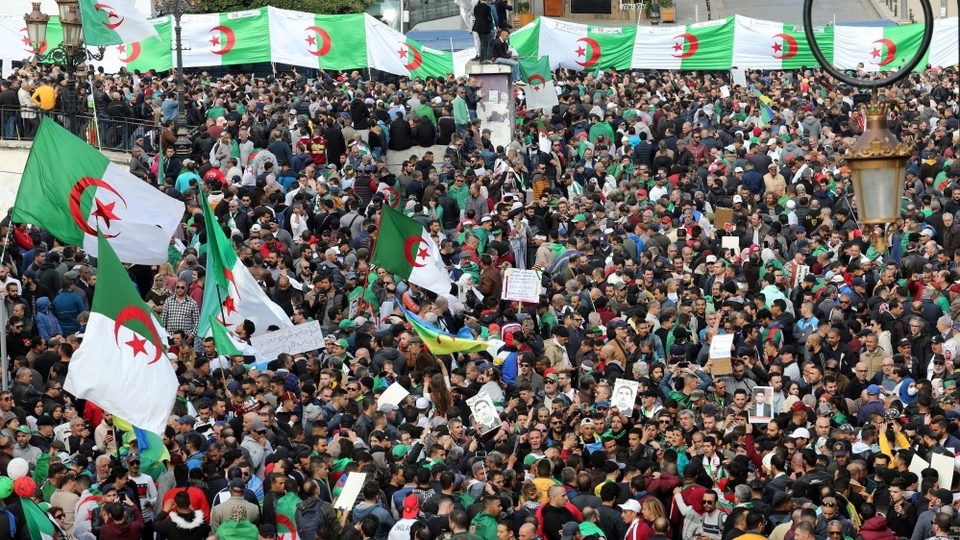The popular and non-violent Algerian anti-government ‘Hirak’ (movement in Arabic) completed one year last week. Thousands of ordinary Algerians participated in protest demonstrations and marches on February 21 and 22 to mark the anniversary of the movement which forced out former president Abdelaziz Bouteflika after 20 years in power, and resulted in the postponement of general elections twice. Due to the strength and persistence of the movement, several high ranking government officials and politicians were arrested and imprisoned on charges of corruption.
On Saturday, Algerians came together in large numbers in the capital Algiers to mark one year of the popular struggle. Over the last year, protesters have regularly been on the streets to rid the country of the old and corrupt elite politicians and businessmen of the Bouteflika era. Today, the people continue to demand a solution to the problems of widespread corruption and the deteriorating economic conditions in the country, and seek to ensure the non-intervention of the Algerian military in the country’s politics.
Protesters gathered in central Algiers near the Grande Poste (Central Post Office) building, one of the main sites of the Hirak protests. They shouted slogans like “the people want the fall of the regime”, “we have not come to party, we have come to get rid of you” and “we’re not going to stop”. They also carried posters and banners that read signs like “no to military power, civil not military state” and other such similar slogans.
A heavy police deployment was reported at the protest site. Checkpoints were also installed on roads leading up to the city. The metro was closed and all trains to the capital from around the country were cancelled in an apparent move to keep the number of protesters down. Although the police did not try and disperse the crowd or resort to violence at first, when the protesters tried to march towards the presidential palace, anti-riot police used water cannons and blocked them from streets around the palace.
A day earlier, on February 21, the 53rd consecutive weekly demonstrations took place across Algeria. Protesters had designated Friday and Saturday as a “landmark moment mobilizing to disqualify the system’s agenda of self-renewal, and to lay the foundations for a new republic”. In the past week several calls were issued to the general public to participate in the protests to mark the anniversary of the movement. Several thousand people, including women and children, turned out for these calls, despite the fact that the overall number of protesters had seen a decline.
Following the election of Abdelmadjid Tebboune, a former prime minister and housing minister under the Bouteflika regime, as president in December last year, the new government has taken some steps to pacify the protesters. The government has released 10,000 prisoners and proposed a reform package, also expressing its intention to enter into talks with the protesters.
The Algerian League for the Defence of Human Rights has said that there are still hundreds of people who remain in custody awaiting trials. In the last year, the authorities have arrested 2,500 people. However, despite the crackdown, the protests have not stalled. Protesters are adamant that until systemic change and freedom and dignity for all citizens is ensured, they will not budge on their demands.





